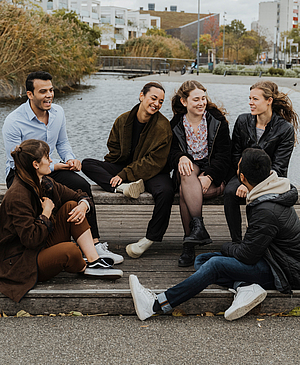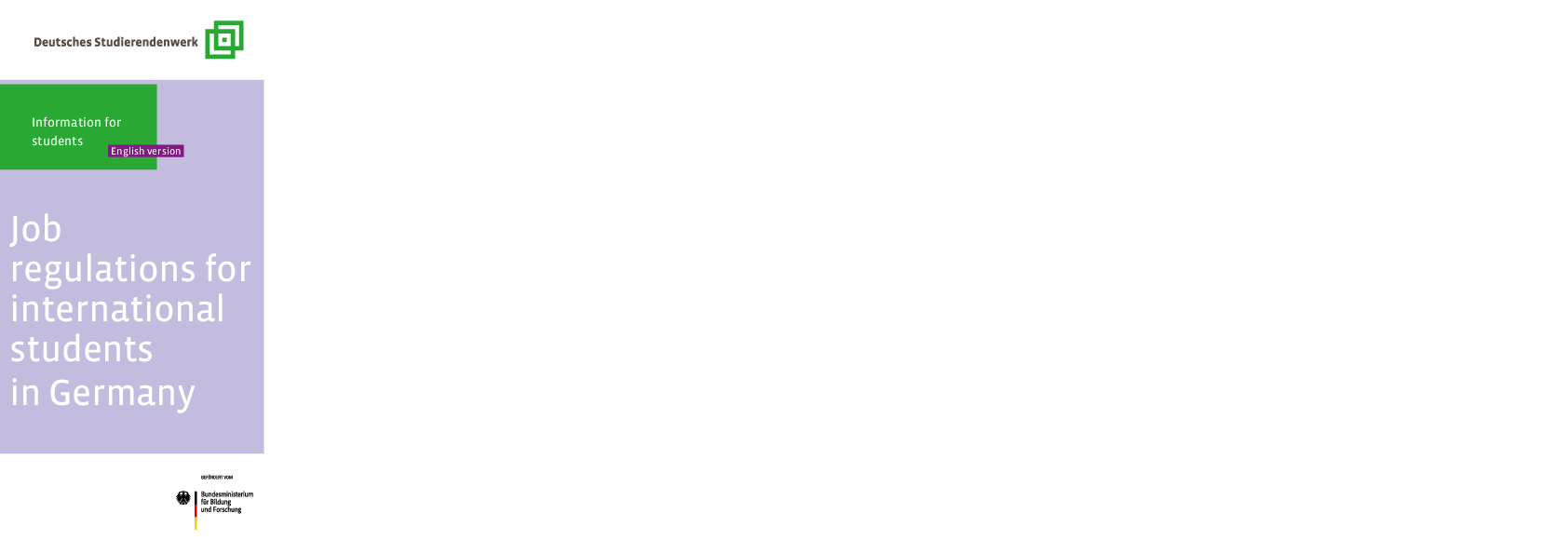
International students
You are an international student and have questions about studying in Germany? You need help with the orientation?
We help you to study in Germany and offer advice on the following topics:
- Residence regulations and issues
- Health insurance, employment
- Special relief funds and scholarships
- Financial hardship
You can also find more useful information at: www.internationale-studierende.de
FAQ
-
How do I find a room or an apartment?
The situation on the student housing market is - especially for international students - not always easy. Therefore, you should find a suitable accommodation before you arrive in Germany.
We offer, for example, more than 2.500 rooms for students in a total of 19 residences in Essen, Duisburg and Mülheim. Many rooms are furnished (but without equipment such as crockery, see room details of the dormitory) and have Internet access. Applications can only be submitted online.
Please note that, depending on occupancy, we may not always be able to offer a room to all students.
-
Where do I have to register my residence?
Within one week, you must register your place of residence with citizens' office (Bürgerbüro) or residents' registration office (Einwohnermeldeamt) in your place of residence.
In many cases appointments are made online. Waiting times can vary greatly, so it is advisable to make an appointment as early as possible.
-
Do I need a health insurance?
Yes, for matriculation and for your residence permit you need a valid health insurances confirmation. You should therefore get this insurance before you arrive if you can.
With some countries, such as members of the European Union and the European Economic Area, Germany has a social security agreement. As long as you have public health insurance at home you can get this insurance coverage approved by a public health insurance company in Germany. But make sure you clarify at home which documents you will need to take with you! For students this is usually a European health insurance card (EHIC). Your insurance company will usually issue the EHIC free of charge.
Should you nevertheless require health insurance, you can choose between public and private insurance in Germany. In most cases, the public insurance is the cheaper option.
However, after the age of 30 or the 14th semester, you can no longer insure yourself at a student rate of the public health insurance.
-
How do I open an bank account at a German bank?
Most banks offer students a free checking account. You should bring a passport (with visa) and a city registration certificate with you to the opening.
-
Do I have to pay the TV licence fee?
Yes, every person who is registered in an apartment in Germany must pay a monthly broadcasting fee of 17.50 €, regardless of whether they own and use a television or radio.
BAföG recipients can be exempted from the obligation to pay contributions.
Further information can be found here: www.rundfunkbeitrag.de
-
If so, how many hours will I be allowed to work?
Yes, but students who do not come from EU or EEA countries can only work in Germany to a limited extent. EU citizens are on an equal footing with German students and have free access to the labour market.
You can find an overview of the current regulations on jobs for international students here.
-
How do I get a residence permit?
If you enter Germany with a visa, you will also have to obtain a residence permit for a longer stay in Germany. This must be applied for at the relevant immigration authority in your place of residence.
Students from the European Union, the European Economic Area and Switzerland do not need such a permit. But they also have to prove that they have health insurance and can finance their studies.
If you are not a citizen of the EU, the EEA or Switzerland, you will need the following documents to apply for a residence permit:
- Biometric photo
- Identity document (e.g. passport)
- Certificate of matriculation from the university
- Proof of permanent residence (tenancy agreement)
- Proof that sufficient means of subsistence are available (guarantee, scholarships, BAföG or assets)
- Health insurance certificate
Like the visa, the residence permit is restricted to a specific purpose. The purpose of your stay determines the extent to which you are allowed to work! Students in preparatory language courses or at the preparatory college may, for example, only work during holidays.
A residence permit for study purposes is issued for two years at a time and must always be extended before the expiry of this period. The extension depends on the proper course of studies, i.e. on whether you take examinations and acquire certificates. In this way, it is checked whether you can complete your studies within a reasonable period of time. -
In which period do I have to find a permanent job after my studies?
Once you have successfully completed your studies, you can apply for a residence permit to look for work for a maximum of 18 months.
During this time you must find a job that matches your qualifications in order to be able to stay permanently in Germany. The responsible contact point is the foreigners authority in your place of residence. As a rule, you will need the following documents for the application:
- Biometric photo
- Identity document (e.g. passport)
- Your degree certificate or proof from the university that you have successfully completed your studies.
- Health insurance certificate
- Proof that you have sufficient means to cover your living expenses (e.g. guarantee, scholarships or contractually proven income from a permitted activity).
-
What options do I have for financing my studies?
International students can also receive under certain conditions some loans or scholarships. In rare cases it is also possible to get BAföG and social benefits. Let us advise you on this!
Cultural offers
Here's an overview to get you going:
Contact
By phone, video and on site
Free of charge and confidential: We are there for you. Gladly also in English.

Advisory Services

Advisory Services
On-site consulting
by appointment
Telephone consultation
Thu 11:00 am - 01:00 pm
Video consultation
Thu 11:00 am - 01:00 pm (book online meeting)
and by appointment
Write an email




